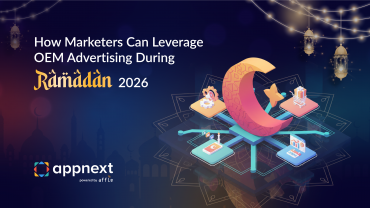MWC is the most important yearly event for Mobile and it felt so good to see the halls buzzing with activity in Barcelona earlier this month; organizers GSMA reported that the three-day event brought more than 88,500 attendees from 202 countries and territories together, including policymakers and business leaders from the mobile ecosystem and beyond.
As digital transformation flourishes around the world, MWC creates a unique platform for the amplification of industry announcements and thought leadership.
As always at MWC, there were some major new product launches from the biggest players in the Mobile world, while this year’s theme of “Velocity” was brought to life through discussions about key topics including 5G, AI and the need for ethical standardization to protect users, and the fair share debate.
European mobile operators took to the stage to vent their frustration over what they perceive as an unfair burden of providing super-fast networks able to keep up with huge demand for high bandwidth content and services.
Speaking in the first MWC23 Barcelona keynote, Orange CEO Christel Heydemann spoke of the crunch being felt by Europe’s mobile operators, with contradictory pressures to meet ever-rising traffic, mostly originating from large digital players, while keeping prices low and squeezing costs.
And in his keynote speech Deutsche Telekom CEO Timotheus Hoettges pointed out that European operators pumped €55 billion into infrastructure alone in 2022, compared with €1 billion invested in connectivity by so-called hyperscalers.
He asked: “Is it a fair deal that hyperscalers and streamers are using our infrastructure for free? Shouldn’t there be a fair sharing between, let’s say this money which we are investing into the infrastructure, and the one we are monetizing?”
Away from the heat of the debate there were, as always, some hot new product launches at the show: Honor unveiled its latest foldable phone, the Magic VS as part of its Magic Five series, while Xiaomi chose MWC23 as the occasion for the global release of its flagship 13 series, having first introduced the Xiaomi 13 and Pro in its home market at the end of last year.
Xiaomi also presented a lower-spec lite version aimed at younger users, with various features designed to appeal to heavy social media users.
The two premier devices in the Xiaomi 13 series feature professional optical lenses and advanced software capabilities aimed at improving the quality of pictures taken – a result of the partnership Xiaomi entered into with well-known camera brand Leica last year.
Tecno also unveiled its new foldable phone, the Phantom V Fold, which it claimed is the world’s first “left-right foldable”. With a price tag of just over €1,000, the phone marks the start of Tecno’s ambition to bring “premium” technologies to its key markets, including Africa where the company first launched, and now India where the foldable will initially be sold.
Another manufacturer with a big statement to make at MWC was Nokia, which announced a bold facelift to its iconic brand. The move is in response to strong growth in its enterprise business in 2022 and, the company said, represents an attempt to distance itself from the handset sector.
Appnext had its own exciting launches to announce at the show – two new partnerships with South African mobile phone manufacturer Mobicel and Turkish manufacturer General Mobile that will bring the two companies multiple benefits, including continuous engagement with their end-users, the opening of new and direct growth channels to increase revenue, a stronger brand image and increased usage.
With Appnext’s technology integrated into Mobicel handsets, advertisers in South Africa can now place their app and services in front of high-value users from the moment they first unwrap and turn on a brand-new device and personalize it to their needs.
From that point on, Appnext’s technology enables advertisers to engage with Mobicel users throughout their daily mobile journey, with personally tailored app recommendations based on their interests and preferences.
Similarly, mobile app developers in Turkey can now engage with a vast mass of General Mobile users directly on their devices and offer local content via Appnext tech-powered recommendations.
For General Mobile and Mobicel customers the experience of using their mobile phones is greatly enhanced thanks to Appnext’s industry-leading discovery solutions offering them highly personalized and contextual app recommendations, delivered in the language of choice and at the relevant moment.
As every year, Appnext had a busy and productive MWC. Our team met with many leading OEMs and mobile operators, as well as app developers and advertisers, demonstrating how Appnext powers a unique mobile experience across multiple touch-points to make users more engaged and loyal.
MWC provides an amazing opportunity to meet and network with global top mobile experts, discuss best practices, reflect on the year’s successes, and plan exciting developments for the year ahead.
See you at MWC 2024.




Comments are closed.